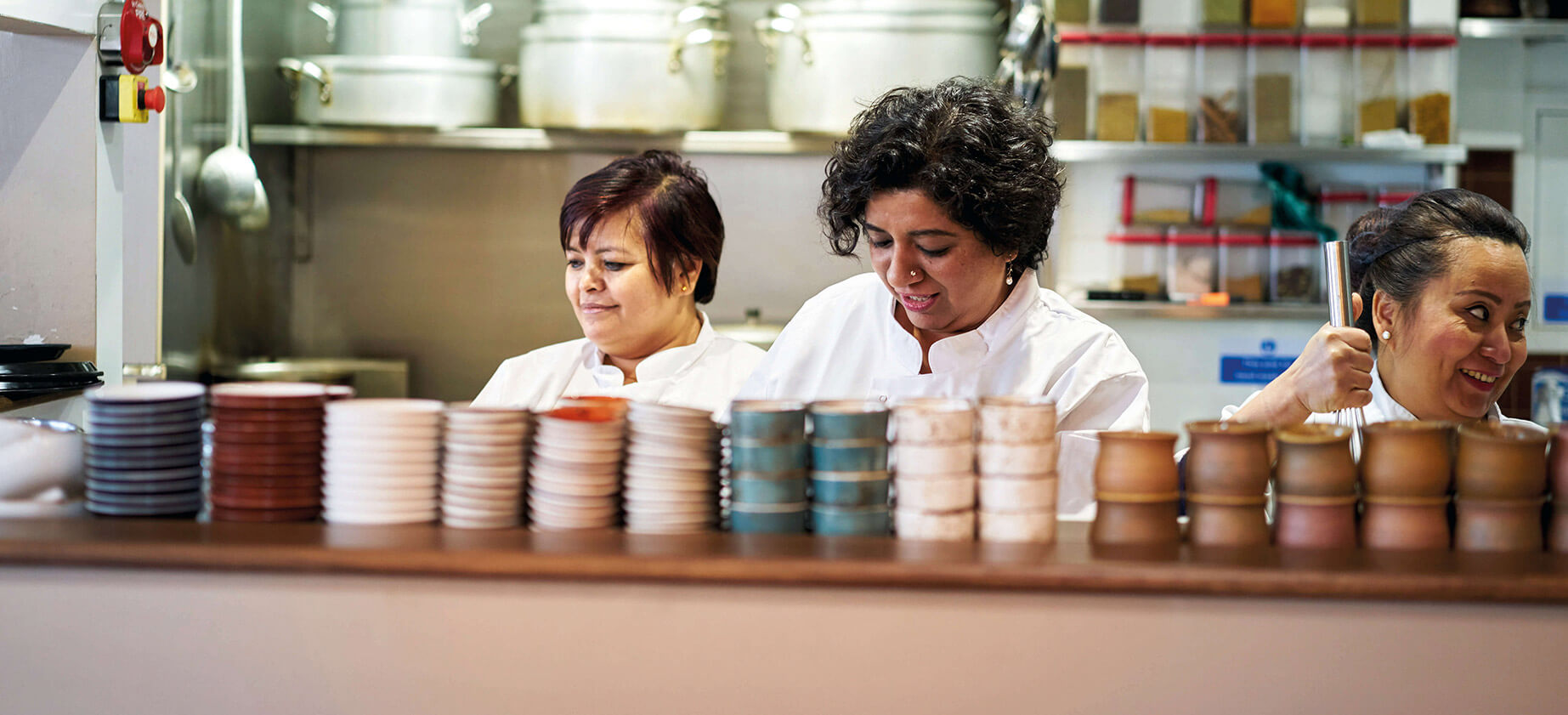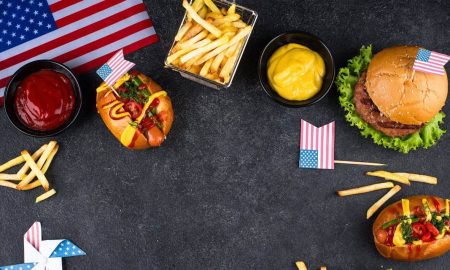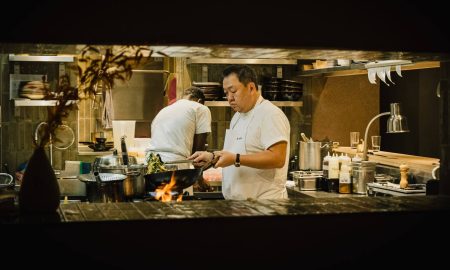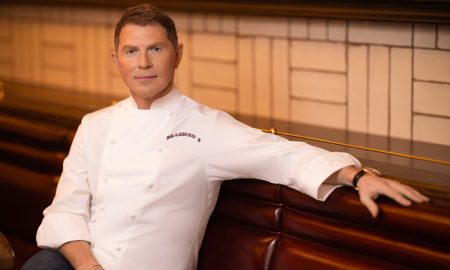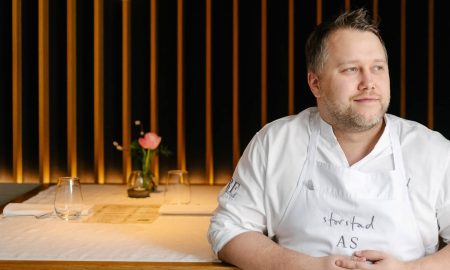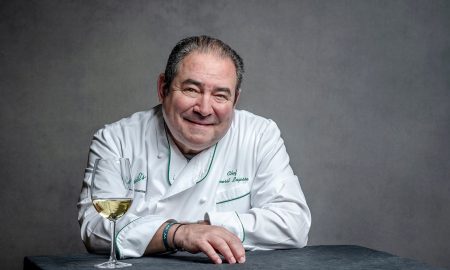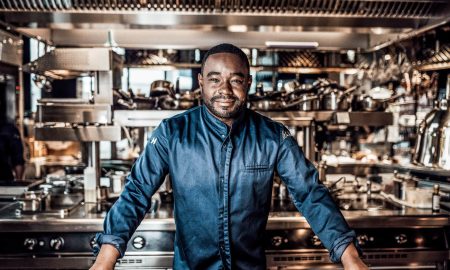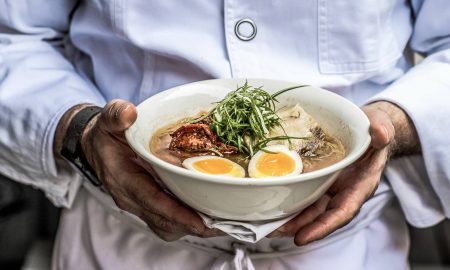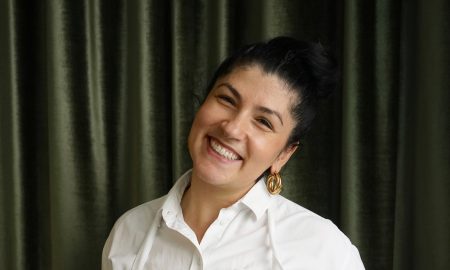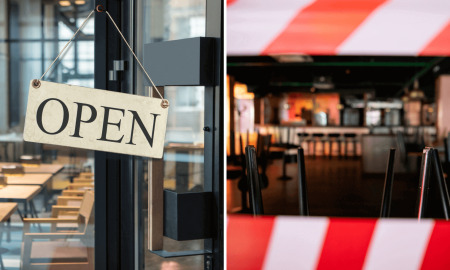If you haven’t heard of Asma Khan, chances are you will soon. Her restaurant, Darjeeling Express in London, is famous for being like no other; the team is an all female brigade of housewives, while staff, including herself, receive the same wage. Of the equal pay structure, the author and renowned restaurateur, says, “Why do men and women get paid differently? It’s beyond me. Why is one more significant than the other? Here, everyone feels they have a part to play.” We’ve met for lunch at her 56-cover restaurant appearance on Netflix – the first British chef to star on Chef ’s Table – she’s been catapulted onto the international platform. Today, several diners ask to be photographed with her.
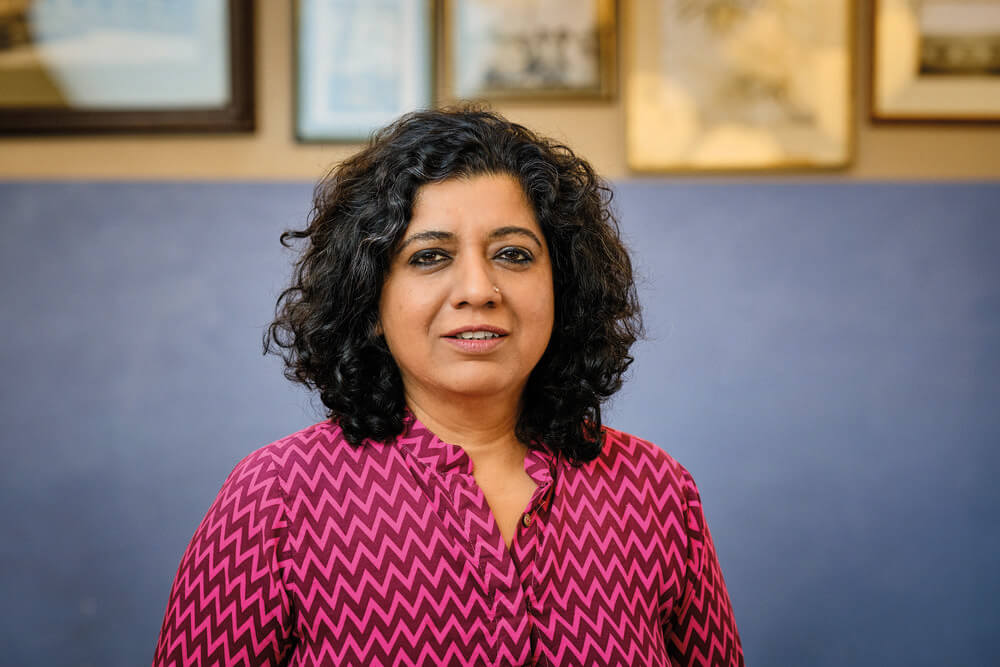
Asma Khan / Image: Asma Khan
Between the interruptions and convivial clatter, Khan explains Darjeeling’s origins. “I had young children, I’d just received my PhD (in British Constitutional Law at King ’s College). A neighbour told me about underground restaurants, what are now called supper clubs and I thought I’d try one.” Launching the humble affair in her Kensington home in 2012, what set the project apart was Khan’s opulent Mughlai cuisine, inspired by her upbringing in Calcutta.
Then there was the staff. “It was women who helped me, nurses from the local hospital, the nannies after school, who would sit around the table prepping with me.” Word of the astounding home cooking spread fast, attracting a waiting list and garnering column inches in the national media.
Not surprisingly Darjeeling Express, which opened in 2017 in a prime spot off Carnaby Street under her aegis, has a similar set of tenets. Today, an excellent front of house, constructed from a team of housewives, commands the floor seamlessly making it one of the most welcoming places I’ve been for some time.
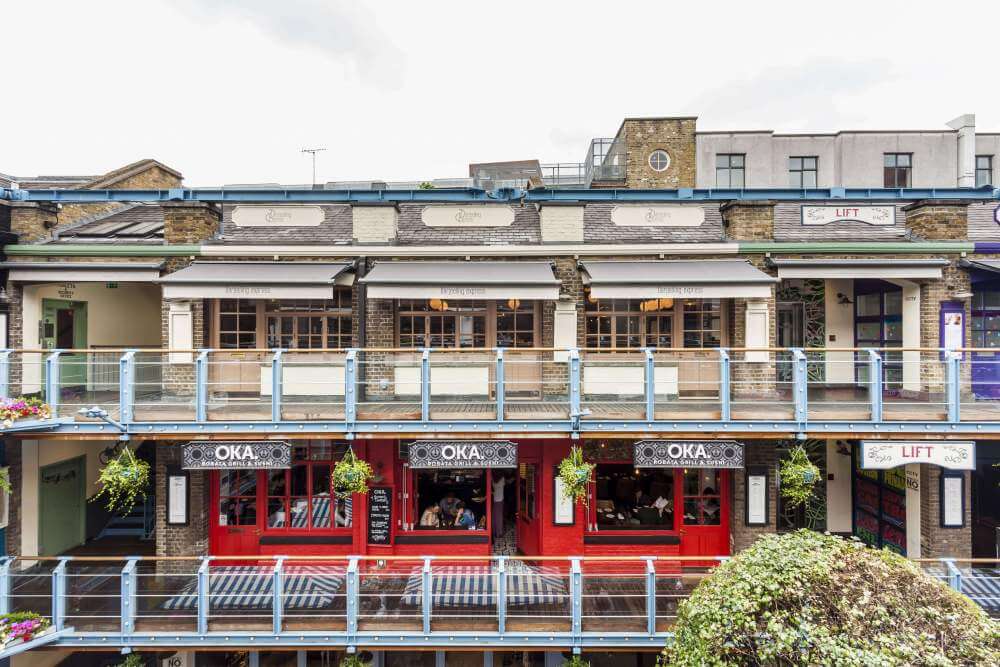
Darjeeling Express / Image: Asma Khan
As we eat corpulent samosa starters, Khan explains how her passion for food began. “The way my mother would feed us all, food was the centre of the family,” she explains of her childhood in India. “I am pre mobile phone and internet age, we had no iPads or distractions, the main entertainment was gathering to eat.”
Growing up in an upper-class family – Khan’s mother is Bengali, her father Rajput – her upbringing was empowering. “My mother raised me to feel I was all powerful, that I could do anything. My father too,” she says. In India, as a second daughter, it was hard not to feel there was disappointment when she was born. “But that sorrow passed, I’m loved so much by my mother.”
Certainly, she’s flouted any stigma this role might have had, redefining what it is to be a woman, a second daughter and immigrant in the restaurant world. Khan is vociferously committed to social change, regularly featuring on BBC Radio 4 and in newspapers internationally, calling out injustice in the industry, when others stay silent.
“I’m always trying to make the case for equality and diversity and also for recognising the honour of women and home cooks.”
Raising her voice
Her bravery is notable in that it resolutely does not follow the herd. She is in her late forties and you suspect she’s always been an agent of change.
When she moved from Calcutta to Cambridge back in 1991, she couldn’t even boil an egg. Missing the fare of home, she returned to India in 1993 and made it her mission to learn to cook.
She learnt her family’s recipes, passed down the generations by word of mouth. Garnering them was a challenge as many were secret, but perseverance paid off and it’s these royal Mughal traditions with a smattering of street-food dishes that define her menu today.
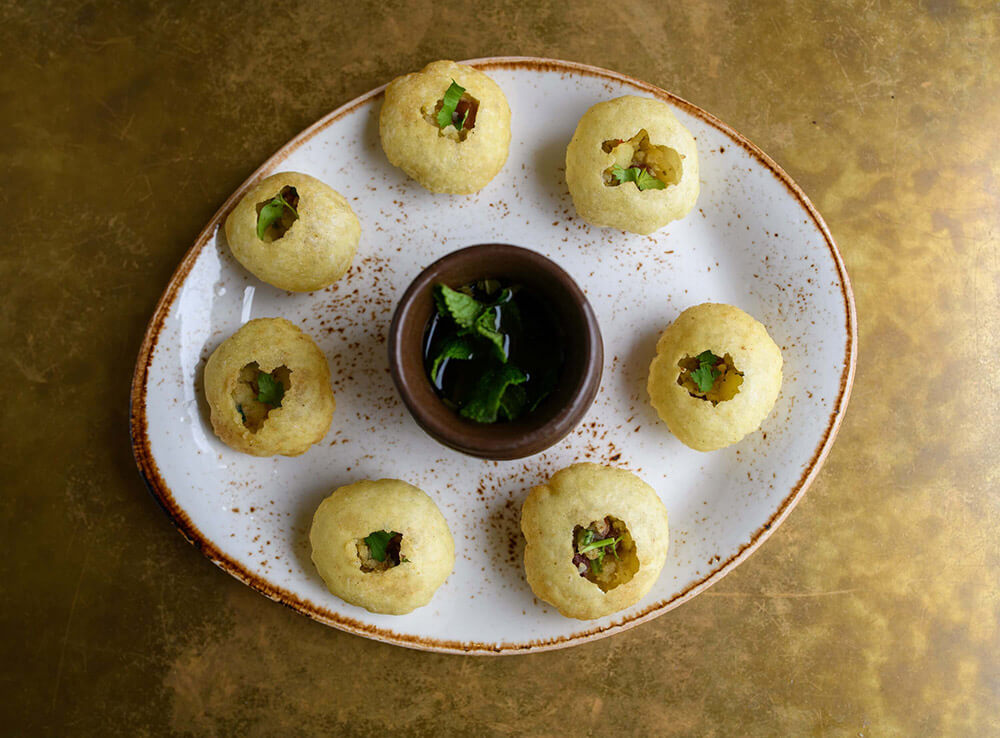
Image: Asma Khan
Another defining moment was when she moved her supper club for a short stint to a Soho pub in 2016. Critics from the Daily Mail’s Tom Parker Bowles, to the Evening Standard’s Fay Maschler, heralded it as a bold venture and overnight new opportunities arose.
Simon Quayle, director at Shaftesbury, the company that owns vast swathes of the West End, offered her a prime site on the third floor of Kingly Court, off Carnaby Street. The caveat? To launch this restaurant, she needed to win the lease against 55 other candidates.
“Many were big names,” she recalls. Khan didn’t even know how to use PowerPoint. “Someone drafted the presentation for me as my son was doing his GCSEs, but I realised I couldn’t use it when I read it – they weren’t my words.”
Instead, she asked if she could serve lunch. “When you go into battle you should play to your strengths.” Needless to say, her heartfelt, creative pitch won.
The next hurdle was after she opened. “I thought as I’d not run a restaurant I should get an entire FOH and a GM from an established restaurant. I’d initially thought I should make sure my service was up to scratch, I didn’t realise how pompous it would be.”
She tried to fire the GM and he took the rest of the staff with him. “Now we do the service with the women here.”
It’s this uncompromising approach that has seen her admired by punters and restaurateurs alike. As well as being voted Female Entrepreneur of the Year at the Asian Restaurant Awards 2018, recently she appeared as the first British chef to be profiled on Netflix series Chef ’s Table.
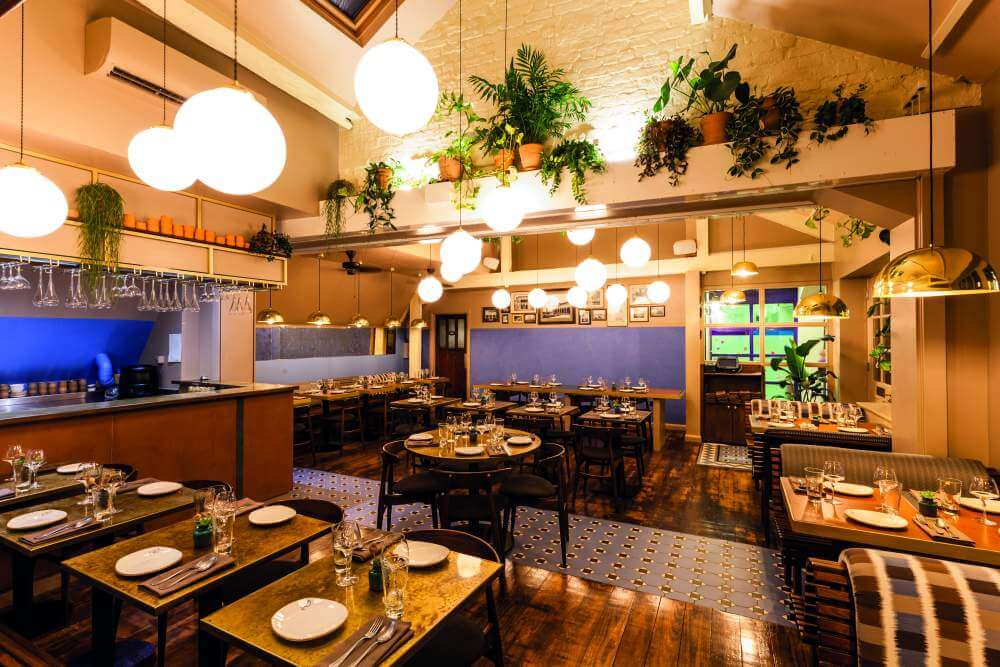
Image: Asma Khan
It’s easy to understand why Netflix dedicated an entire episode to her. Not only is she gregarious, but charismatic too. Given its global reach – about 140 million subscribers – what were the effects on business? “I’m aware it’s like the actor who stands at the wings, waiting for their cue. Netflix was the cue,” she divulges with an air of insouciance.
Of course, she’s been invited to open restaurants in “Japan, Saudi Arabia, etc,” but she’s said no. “I don’t want to waste my moment on stage, hanging out with the great and the good or making money.”
Rather, she wants to use it to raise her voice, “to fight injustice, highlight issues important to me. I’m not taking any money to my grave.”
So for the future, her focus is on reform. Inviting me to tuck into a meal of piquant goat curry and paratha, she refers to mental health in the workplace. “The first thing we need to do is change this macho culture, the 16-hour shifts, design a kitchen for women, even dads, where they can return to their children,” she explains. “You’d see better mental health, chefs would come back rejuvenated.
There’s no need for this outmoded way of working.” The conversation moves onto why there aren’t more women chefs in the kitchen, especially at the top echelons. She vehemently criticises kitchens, where jokes are innuendo and touching in jest without consent is rife. “It’s unacceptable. We should have a policy of three women in the kitchen at any time, there’s safety in threes.”
Continuing, she adds: “I blame the owners, who have allowed the head chef to be a demigod, you can’t touch the head chef. Everyone is so scared especially when there are investors.
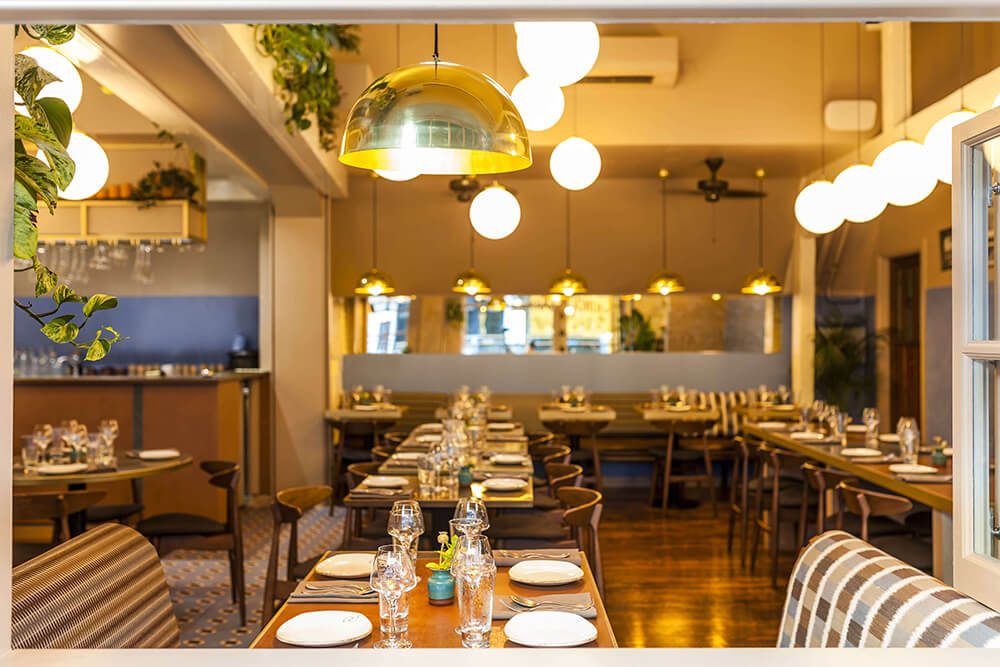
Image: Asma Khan
They’re scared their restaurant will get penalised financially, or even close, if the head chef leaves. It needs to change.” Are we heading for a #metoo in the eating out industry? “There won’t be a #metoo moment, but there will be a #metoo movement. It’s happening now,” she says. “I have complete faith in the female collective.”
Respect for women
If anyone can persuade hospitality to modernise, it’s Khan. But wouldn’t becoming a lawyer be more effective?
“No, I’m using my law experience every day, my skills of advocacy, more than I ever could as a lawyer, I haven’t left the legal profession in some ways. Being a restaurateur has allowed me to have a space where I can communicate. Food has this ability to bring down walls.”
So what next? “I’m consulting on a proposed Hollywood film based on my life story, it’s called Second Daughters.”
Charity is a theme throughout Khan’s work. This summer she launches the Second Daughter’s Fund, where a percentage of all proceeds from Darjeeling Express will go to struggling families with second daughters in India.
“I’m a second daughter, so are most of my staff. In our culture, having a daughter is expensive, there are dowries, gold and gifts. The second daughter’s arrival can be like a death so I want to get this running so we pay for a party after the baby’s born to celebrate her birth and continue to support her through her education.”
Recently, she’s been working in Jordan visiting a Syrian refugee camp with the charity, Islamic Relief. “It was deeply moving, the women found it hard, there was pain, there was this bursting of the dam.” Of inequality globally, she concludes: “There’s not a problem with tech or hospitality or engineering, there is a problem with our gender and it’s about respect for women.” We have a quick interlude while someone else asks to have their picture with her. When she returns, she adds, “I see myself as not just a restaurateur, I try to highlight issues, things no one else will say. I’m the voice of the voiceless and it’s a misconception that women can’t take the heat.”


